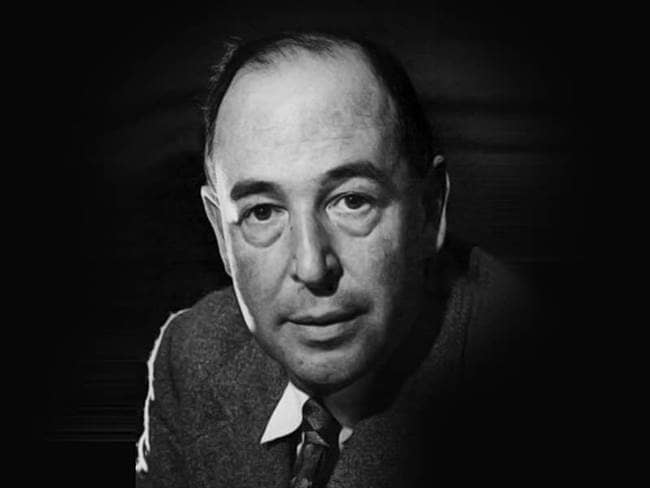
How the over two billion Christians of the world respond to their religious neighbors is one of the most important questions of our time. In a world that seems increasingly hostile to faith, it can seem easier to remain in bubble of religious community rather than building bridges to other faiths. But according to Marion H. Larson and Sara L. H. Shady’s new book, “From Bubble to Bridge,” Christians everywhere can dialogue with those of other religions without watering down their own—and in fact, they must, if they are to continue affecting the world in a positive way.
A quote included in “From Bubble to Bridge”—from Amber Hacker, vice president of operations and communications at Interfaith Youth Core—sets the tone for the book’s message.
“To me, interfaith cooperation means we have a basic respect for religious and nonreligious identities, that we build on that respect to form mutually inspiring relationships, and that we come together based on our shared values to serve our communities.”
Note that Hacker is not advocating the idea that everyone needs to believe the same thing. Rather, she’s advocating respect, and a focus on those values those of different faiths do share.
This is the key to building bridges, to engaging in productive interfaith dialogue, and ultimately, to a more peaceful world than what we know today.
Trapped in a Bubble
For many Christians, fear is what creates bubbles—fear of watering down one’s faith, of being seen as “weak,” or of somehow losing the love and favor of God. These bubbles can be communities, churches, university campuses, and even neighborhoods and towns. But they’re all marked by one thing—homogeneity of thought.
Bubbles, according to Larson and Shady, form “whenever we draw clear boundaries between ‘us’ and ‘them,’ and focus most of our time and energy on the safety of ‘us.’” And while these bubbles do provide support and safety to Christians, they provide little challenge. They don’t provide the tools needed to navigate a modern world filled with a multitude of faiths, nor the tools to build constructive relationships with a diverse population.
And because of this, when many Christians—particularly evangelicals—encounter neighbors of different faiths, their reaction is one of fear and hostility. But in a densely populated and religiously diverse world, this kind of reaction not only holds us back as a collective people, but also as Christians.
Jesus didn’t live in a bubble. And neither should we.
Breaking the Bubble
Here’s the problem with moving from bubbles to bridges, as posed in “From Bubble to Bridge.”
“How to we genuinely listen to and respect those who have different religious beliefs while retaining commitment to our own?”
Many Christians have no experience as bridge-builders. Because they’ve been in the bubble for so long, they haven’t had many opportunities to talk about their faith with people of diverse worldviews. They also haven’t learned to listen well when people of other religions share their own faith experiences, according to Larson and Shady. They have no idea of how to even begin breaking out.
So what’s the solution?
Be a Christian.
That’s right—to pop the bubble, all we have to do is embrace our Christianity to the fullest.
Paul, in 1 Corinthians 13:2, writes “If I speak in the tongues of men and of angels, but have not love, I am only a ringing gong or a clanging cymbal. If I have the gift of prophecy and can fathom all mysteries and all knowledge, and if I have a faith that can move mountains, but do not have love, I am nothing.”
Those are strong words, and a strong endorsement of community. But let’s go even farther and look at the example of Christ, Himself.
“Matthew 22:37-39, Christ gives two commands: “Love the Lord your God with all your heart, all your soul, and all your mind,” and “Love your neighbor as yourself.” Engaging in interfaith dialogue means following both of these commands to the fullest.
The life and example of Jesus Christ was marked by concern for those not of the faith. Yes—His heart was broken over their disbelief, but He showed His concern not through insults and wall-building, but through meeting them where they were, by feeding them, speaking with them, and healing them. He built relationships with nonbelievers and participated in His community in a positive way.
And so if Christ, Himself, wasn’t afraid to leave the bubble, should any Christian be?
Building Bridges
So you’ve decided to move out of the bubble, but you’re not sure how to start building the bridges. What do you start?
You begin by being intentional.
This means, as Larson and Shady put it, that “We must actually choose to build meaningful and constructive relationships with those who believe differently.” This means more than mere coexistence. It means reaching out to your neighbor in a kind and positive way. It means that your Baptist church works with the local Islamic mosque to raise money to feed the poor in your community. It means open, honest, respectful dialogue.
As a Christian, you can embrace a shared ideal of respect, love, and justice that crosses the boundaries of faith, and you can do all of this without compromising your own beliefs. Focus on what you have in common rather than what divides, and you’ll soon find that people of different faiths share many common civic goals.
Here’s a little homework. Investigate an issue of religious tension in your own community and ask yourself one question—how is a lack of interfaith dialogue causing this problem? Now, visualize building a bridge that solves the problem. What does that bridge look like? How might it be built?
Try this exercise any time you encounter faith-based tension, and you’ll begin the process of learning how to build cultural bridges.
A Better World
The need to impose upon and dominate other faiths is what leads to religious violence and division—and if conversion is what you have in mind, causing suffering and anger is the absolute worst way to go about it.
Remember—when it comes to the Christian faith, you are the face of God’s love. You are His ambassador on Earth. Do you want others to think of God as evil and divisive, or do you want others to think of Him as loving and correcting? Which was Jesus more like?
But faith aside, hostility is a real problem in our world right now. People are being hurt, bullied, discriminated against, and murdered. Think about what works, about what creates peace and alleviates human suffering. Is it better to dehumanize those of other faiths, or is it better to find common ground, and to work with them on civic matters toward a better future?
One thing is for sure—when two billion people move from the safety of their religious bubbles and start building bridges to other cultures, faiths, and worldviews, the world suddenly becomes a place that we can all enjoy together.
Doesn’t that sound beautiful?
"There is neither Jew nor Gentile, neither slave nor free, nor is there male and female, for you are all one in Christ Jesus."
-Galatians 3:28

